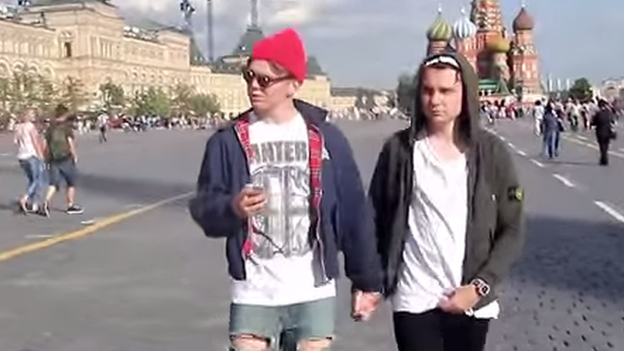Russia's mixed messages on LGBT
- Published
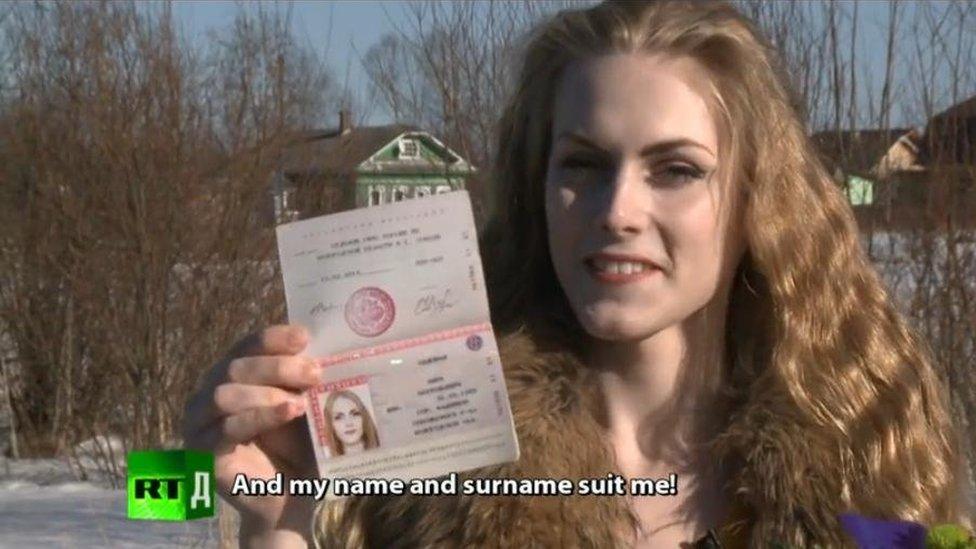
Kira Sadovaya is the main heroine of RT's documentary series TransReality
Kira is a young Russian transgender woman waiting for the gender re-assignment operation that is going to allow her to live her life officially as a woman. She is studying in Moscow, where she also works as a fashion model.
Back in her home town in northern Russia, the revelations about her sexual identity have thrown her family into turmoil. Her brother Maxim's first reaction was to beat her up. Her sister Alyona will barely talk to her, while her mother is continually dissolving into floods of tears.
Kira's troubled but touching progress towards her long-awaited goal is the central thread in TransReality, external, a 15-part documentary series about the lives of a group of young, transgender and gay Russians.
What is perhaps surprising about TransReality is that it was made by, the Kremlin's flagship international TV channel, RT.
First shown in 2015, it also features Veronika, who is deaf and takes part in international transgender beauty contests, a lesbian rap singer called Valeria, and Dmitry and Alisa, who look and dress like identical twin sisters, but are actually man and wife.
Russia's neighbours take action against Kremlin media
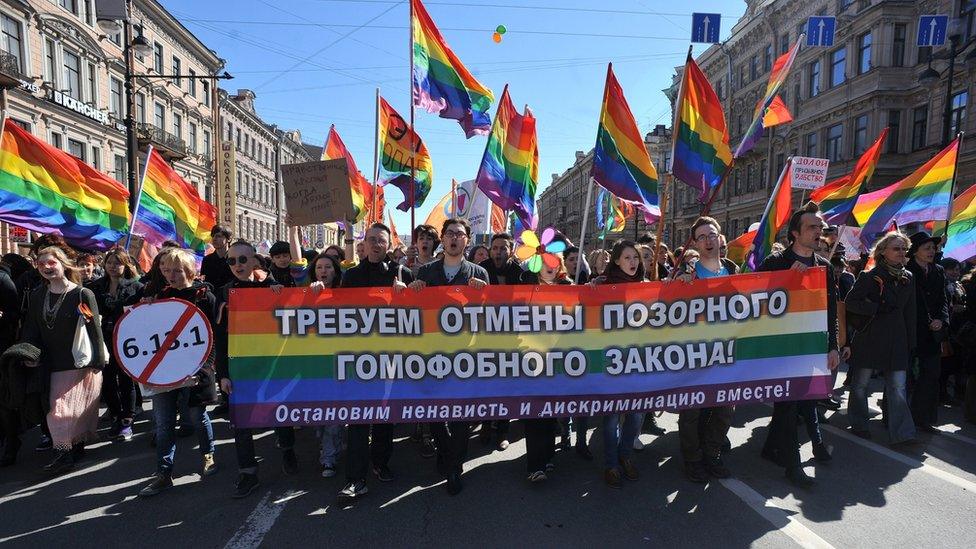
Russian LGBT activists campaign against controversial gay propaganda law
Homophobia
In some ways, TransReality presents a sanitised version of LGBT life in Russia. It has virtually nothing to say, for instance, about the wave of homophobia that accompanied the passing of a 2013 law, which controversially banned the promotion of homosexuality among minors.

More on LGBT life in Russia

The harsh realties facing LGBT Russians in the wake of this law were explored in the BBC Three documentary "Gay and Under Attack", part of British actor Reggie Yates's "Extreme Russia" series.
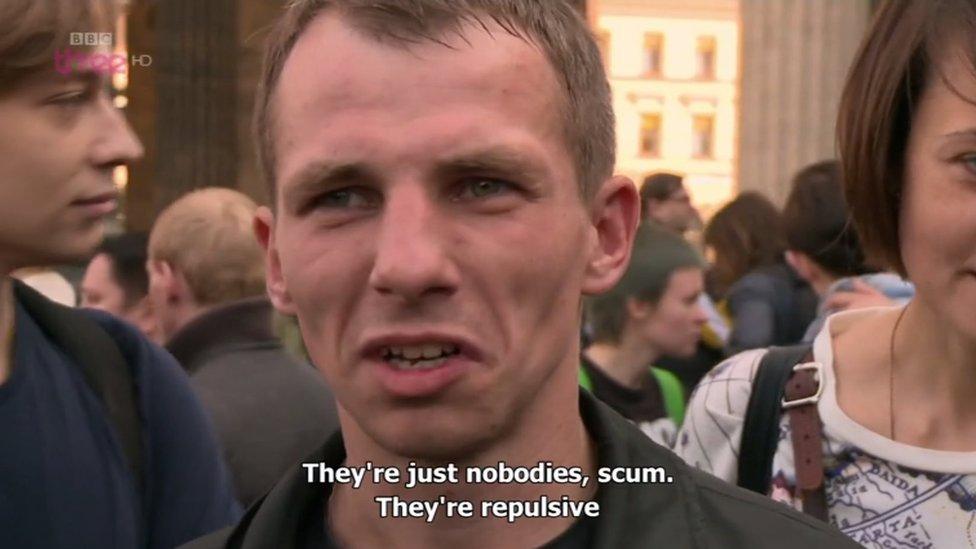
A BBC Three documentary last year highlighted the levels of homophobia in Russia
Nevertheless TransReality's sympathetic treatment of alternative sexual lifestyles is a world away from the sneering and hostility regularly seen on domestic TV in Russia.
Ever since Vladimir Putin's re-election as president for a third term in 2012, state TV has repeatedly sought to portray the acceptance of LGBT lifestyles as a disease of the decadent West.
This apparently orchestrated campaign culminated in a documentary called "Sodom", external shown on official channel Rossiya 1 just a few months before TransReality, which repeatedly referred to gay people as "sodomites" and "perverts", equated homosexuality with paedophilia and suggested that the campaign for LGBT equality was part of a US-backed conspiracy to undermine Russian nationhood.
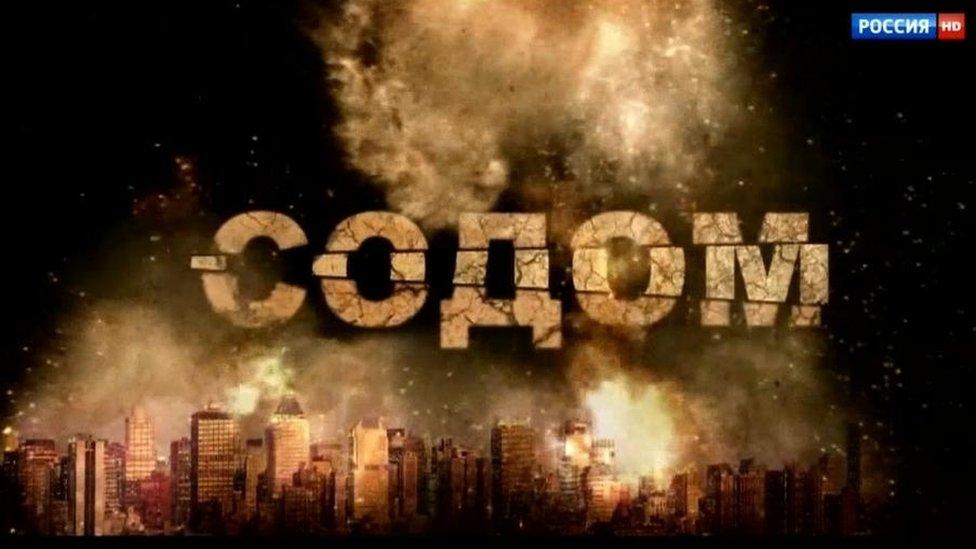
Sodom - Russian state's apocalyptic view of the advance of LGBT equality
By contrast, RT America's reports, external about recent controversies in the US involving LGBT rights have been scrupulously fair towards equality campaigners, even clearly favouring them on occasion.
For all the rhetoric about traditional values, when it comes to influencing audiences abroad the cause of moral conservatism does not appear to be a Kremlin priority.
In the US, RT's target audience appears to be among the disaffected Left and the libertarian Right, many of whom are strong supporters of LGBT rights.
Key messages running through both RT and state domestic media are hostility to the US government, Nato and other Western institutions, including the EU.
Smokescreen
Hardline moral conservatism may not be much of a priority for the Kremlin even at home.
As journalist Leonid Ragozin has argued on Coda Story, external, an English-language website that has provided in-depth coverage of LGBT issues in Russia, the Western furore about the so-called gay propaganda law may have acted as a kind of smokescreen for the real work of political repression that has gone on relatively unnoticed.
He pointed out that whereas the Union of Solidarity with Political Prisoners listed 59 people in prison or under house arrest on charges related to their political activity, no-one had actually been locked up in Russia for LGBT activism as such.
Kira's story in TransReality has a happy ending. We last see her back in her home town proudly showing off her new passport surrounded by her mother, father and Aunt Svetlana.
But LGBT life in provincial Russia may well be becoming harsher.
A thousand km (600 miles) east of Moscow, the gay scene in Samara is said to have dwindled, external, in the face a regular onslaught of homophobic violence and police harassment.
BBC Monitoring reports and analyses news from TV, radio, web and print media around the world. You can follow BBC Monitoring on Twitter, external and Facebook, external.
- Published13 August 2013
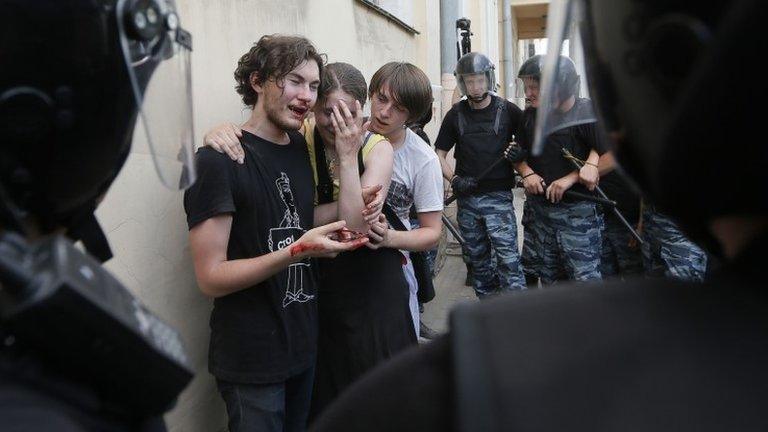
- Published11 June 2013
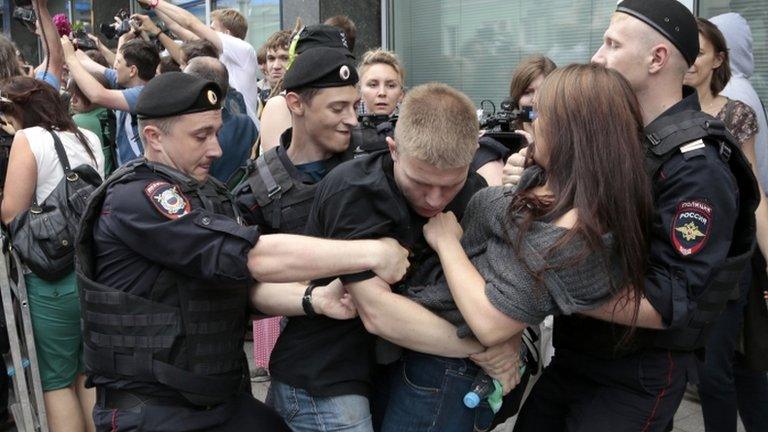
- Published15 July 2015
